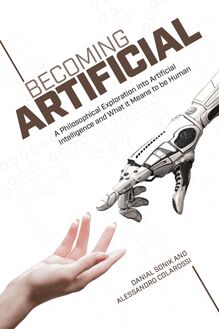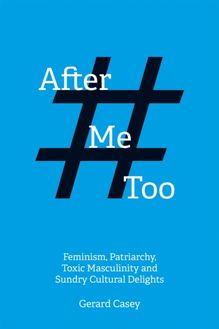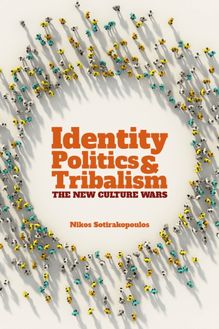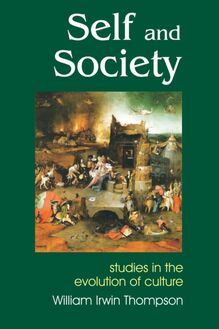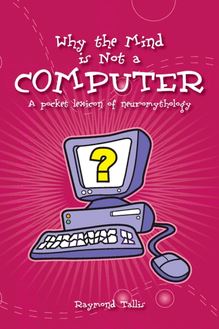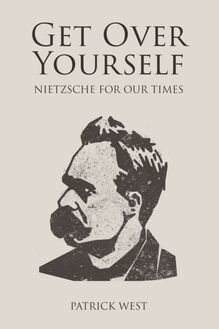Party's Over , livre ebook
99
pages
English
Ebooks
2013
Vous pourrez modifier la taille du texte de cet ouvrage
Obtenez un accès à la bibliothèque pour le consulter en ligne En savoir plus
Découvre YouScribe en t'inscrivant gratuitement
Découvre YouScribe en t'inscrivant gratuitement
99
pages
English
Ebooks
2013
Vous pourrez modifier la taille du texte de cet ouvrage
Obtenez un accès à la bibliothèque pour le consulter en ligne En savoir plus
Publié par
Date de parution
09 décembre 2013
Nombre de lectures
0
EAN13
9781845405281
Langue
English
Poids de l'ouvrage
1 Mo
Publié par
Date de parution
09 décembre 2013
Nombre de lectures
0
EAN13
9781845405281
Langue
English
Poids de l'ouvrage
1 Mo
Title page
The Party’s Over
Blueprint for a Very English Revolution
Keith Sutherland
IMPRINT ACADEMIC
Publisher information
2013 digital version by Andrews UK Limited
www.andrewsuk.com
Copyright © Keith Sutherland, 2004
The moral rights of the authors have been asserted
No part of any contribution may be reproduced in any form without permission, except for the quotation of brief passages in criticism and discussion.
Cover photograph: Joshua Sutherland
Originally published in the UK by Imprint Academic
PO Box 200, Exeter EX5 5YX, UK
Originally published in the USA by Imprint Academic
Philosophy Documentation Center
PO Box 7147, Charlottesville, VA 22906-7147, USA
www.imprint-academic.com/societas
Dedication
This book is dedicated to
the Rt. Hon. Anthony Charles Lynton Blair MP
for successfully executing the brilliant tromp d’oeil
that prompted me to write it
and to Lord Hutton
for providing us with such a clear illustration
of the legitimacy of the jury principle
Frontispiece
Detail from engraved title-page of Leviathan (1651)
Epigraph
Experience must be our only guide,
Reason may mislead us
John Dickinson
US Constitutional Convention,
Philadelphia, May 1787
Introduction
There is a long tradition of philosophical scepticism regarding the very notion of democracy – in fact until comparatively recently it was quite difficult to find a philosopher who had anything to say in favour of it. This comes as a surprise to most modern readers, as the myth of democracy is now so all-pervading (Graham, 2002).
The philosophical case against the democratic state is almost as old as democracy itself and originated in its birthplace, Athens. In the Republic and the Gorgias , Plato asked some searching questions about democracy which have still to be properly answered. Plato’s objections to democracy are two-fold, as exemplified by the exchange between his mouthpiece, Socrates, and Gorgias, one of the leading rhetoricians of the age. Gorgias boasts that, armed with eloquence alone, he was able to persuade a patient to take treatment, even though the entreaties of his doctor had fallen on deaf ears. Socrates, taking this as a metaphor for Athenian democracy, replies that a system of government that a) is not based on knowledge and competence and b) puts power in the hands of rhetoricians like Gorgias is a corrupt and decadent system. Merely possessing the rhetorical skills to sway the multitude is no substitute for government based on knowledge and political wisdom. ‘Just as it would be madness to settle on medical treatment for the body of a person by taking an opinion poll of the neighbours, so it is irrational to prescribe for the body politic by polling the opinions of the people at large.’ ( ibid ., p. 23).
This view on the problem of democracy has been upheld by the majority of philosophers since the time of Plato. Aristotle maintained that democracy was a corruption of politeia (constitutional government), a hybrid system characterized by the separation between the legislature and the executive. Although, in his eyes, aristocracy was the best regime, he thought that most communities were not, in practice, suitable for the optimum, hence his preference for the hybrid (in its uncorrupted form).
Modern criticisms of democracy have focused more on the liberty of the individual, a topic of little interest to the Greeks (see below). Immanuel Kant (1724–1804) claimed that ‘Democracy, in the truest sense of the word, is necessarily a despotism’ (Kant, 1991, p.101) ‘because it establishes an executive power through which all the citizens may make decisions about (and indeed against) the single individual without his consent.’ This fear of the tyranny of the majority became the main thrust of liberal objections to democracy from Burke through to Mill, ending up with Lord Hailsham’s observation (Hogg, 1978), that the British constitution was an ‘elective dictatorship.’ [1]
In his brilliant (and almost entirely overlooked) book, The Case Against the Democratic State , the moral and political philosopher Gordon Graham builds upon the arguments of Plato and Kant to demolish the ‘myth’ of the democratic state. According to Graham democracy merely serves to provide a patina of legitimacy to mask the extraordinary growth in the power of the modern state. But democracy is just a mechanism to select leaders – from the point of view of the individual voter there is little to prefer it over the tossing of a coin (Graham, 2002, p. 58). So much for the slogan ‘power to the people.’
The book starts with a consideration of Hobbes’s case for the state. Graham is not persuaded by Hobbes’s pessimistic view of human nature, observing that if the only thing that deters people from indulging in a life of criminality is the fear of punishment then they have nothing to worry about, as the chance of detection is small. On the contrary, he remarks that ‘the reason that I do not go in for murder and mayhem is that I have no inclination to do so’ ( ibid ., p.11). But, unlike the American anarchist thinkers discussed on pp. 88–95, below, he does think there is an argument in favour of the state – defined as the monopolist of legitimate coercion (Weber, 1948, p. 78). For in cases where there is a trade-off between individual advantage and the general good, individuals are more likely to sacrifice their own advantage if they know that the state will coerce all other individuals to act in the same way. However this limited benefit needs to be set against the cases in which the state is the cause of criminality – the examples he draws on are ‘prohibition’ in America and the ‘war on drugs’ (Graham’s book was published before the declaration of the ‘war on terror’).
The other factor in the cost–benefit analysis is the long and bloody history of murder and mayhem committed in the name of the state.
So Graham’s anarchism is of the limited variety and the thrust of his argument is not against the state per se (although he would like to see its power and extent drastically curtailed) but against its legitimizing myth – democracy.
The myth of ‘people power’ in democratic elections is forensically explored by Graham. The power of the individual elector to change the outcome of elections is minimal. This is because in modern democracies the extension of the suffrage cannot in the end empower people because once the political ‘cake’ has grown past a critical size each voter’s slice becomes so small as to be causally irrelevant. [2] He contrasts the diminishing returns of political power with public goods such as road lighting. Public goods by definition confer benefits on any number of people, while in this respect political power is limited. However, the democratic myth hides this fact so that democracy is not believed to suffer from diminishing returns. When people see through the myth, and discover voting is causally irrelevant, apathy results.
It is impossible in a short summary to do justice to the arguments involved – you will need to read it for yourself – but the practical proposals made in this essay are my response to Graham’s case against the democratic state.
For the weakest part of his book is its concluding chapter, ‘Alternatives to Democracy’. This is something of a misnomer, because there are no practical alternatives on offer, merely an exercise in hermeneutics. Even though it can be proved – conclusively to my mind – that participation in the democratic process has no causal value, [3] it is still a useful moral exercise. The republican moral virtues need to be nourished and participation in the democratic charade is one way of demonstrating our sense of civic commitment. [4]
As Gordon Graham is a professor of moral philosophy, no doubt this is a suitable conclusion to his book, but those of us of a more practical disposition might think that the time has come to replace the charade with something that is a little more effective. The current essay is my own effort in that direction. However, moving away slightly from Graham’s theme, it is not democracy per se that is challenged by this essay, but rather the imbalance of our contemporary political arrangements that places a monopoly of power in the hands of the leaders of political parties. Along with Dicey, this essay proposes that we should fight fire with fire by introducing a revitalized form of democracy to overcome the abuses introduced by party-political factionalism.
The Iron Law of Oligarchy
The reason for alarm is not that the English executive is too strong, for weak government generally means bad administration, but that our English executive is, as a general rule, becoming more and more the representative of a party rather than the guide of a country.
Albert Venn Dicey
Democracy may have received a mauling at the hands of philosophers, but it hasn’t fared much better in the writings of political sociologists. According to the so-called ‘elite theorists’ (Gaetano Mosca, Vilfredo Pareto and Robert Michels), democracy will always degenerate into oligarchy. This is true both of states and the internal organization of political parties (Michels left the German Social Democratic Party as a result of the corruption of its democratic ethos). This is partly on account of the psychological needs of the masses for leadership (see below) – Shaw famously defined democracy as a ‘collection of idolaters’. ‘In states under democratic rule it is a general belief that oratorical power is the only thing that renders a man competent for the direction of public affairs’ (Michels, 1968, p. 98).
But the principal reason for the oligarchical tendency of the poli

